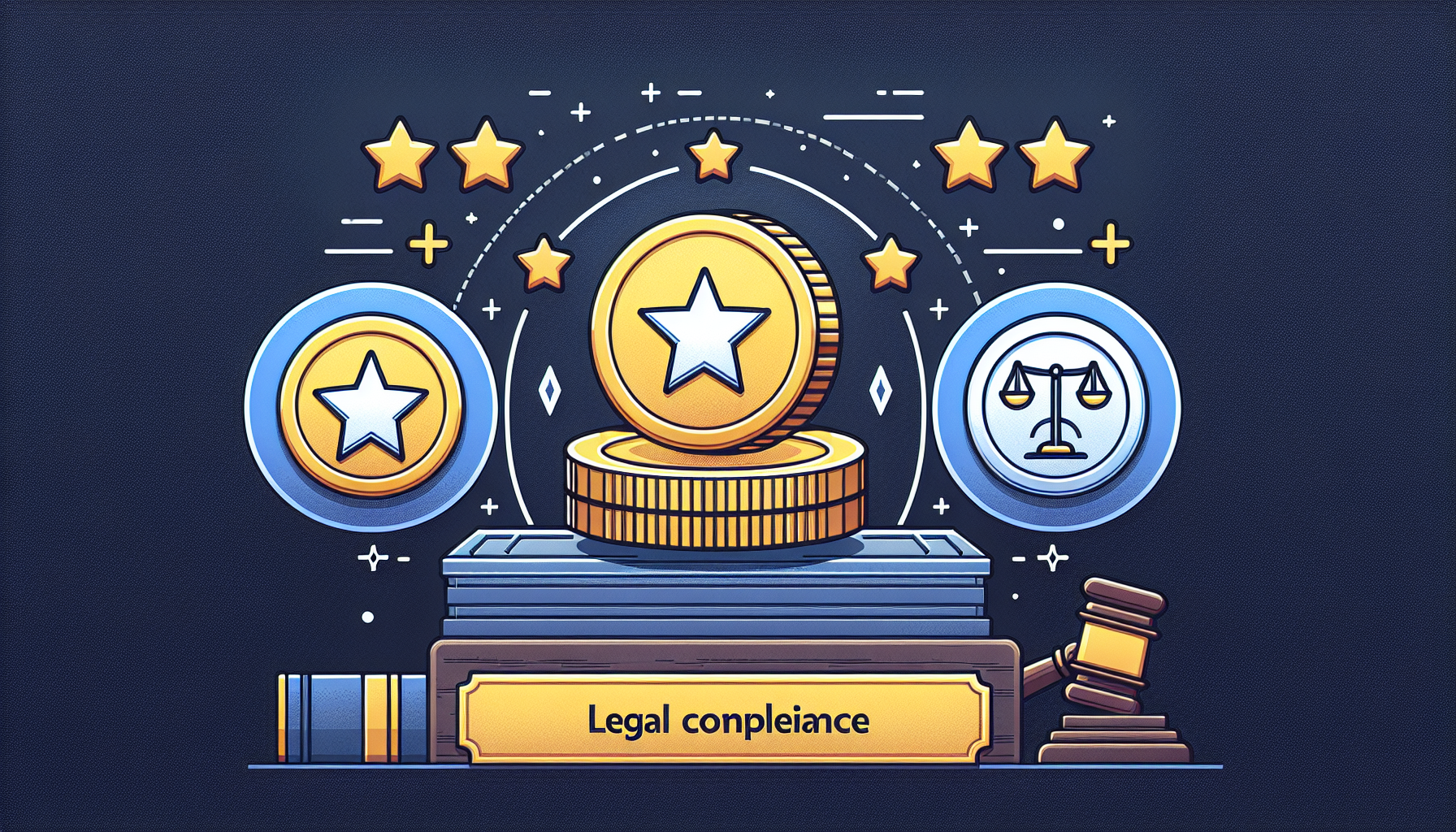Navigating the labyrinth of laws in the U.S. can be tough, but sweepstakes casinos have found a path. They blend the thrill of traditional casinos with legality. How do they do it? Let’s dive in and discover how these platforms keep themselves **compliant** while offering engaging gaming experiences.
Understanding The Dual-currency System And Its Legal Implications
In sweepstakes casinos, the dual-currency system plays a pivotal role in maintaining legal compliance. This system typically involves two types of currency: one that can be purchased and another earned or used for gameplay only, without real cash value. The purchased currency allows users to redeem prizes, ensuring they adhere to legal standards by distinguishing it from gambling currency.
Many states view this system favorably because it fits within legal parameters for sweepstakes rather than direct gambling. The key is that the purchased currency is used for entertainment and does not equate to direct bets, reinforcing compliance. Likewise, the presence of a secondary, non-monetary currency enables players to engage with games without wagering money, further distancing these platforms from traditional gambling operations.
Legal experts often evaluate the delineation between these currency types to ensure no crossover that may blur the lines of legality. Operators of sweepstakes casinos need to stay updated on laws as they vary significantly across jurisdictions. Understanding these nuances is essential for maintaining a compliant sweepstakes model that aligns with state regulations.
Looking to the Future
As legal landscapes continue to evolve, so too must the systems employed by sweepstakes casinos. Dialogues with legal teams and ongoing adjustments to platforms ensure compliance. By grasping the dual-currency system’s intricacies, these casinos can pursue expansion opportunities responsibly and ensure customer assurance regarding legality and fair play.
Adapting To State-specific Regulations For Sweepstakes Gaming

Sweepstakes casinos must navigate the complex legal landscape of state-specific regulations to ensure they operate lawfully. Each state has its own set of rules that define what constitutes legal sweepstakes gaming, and casinos need to adjust their operations accordingly. The key difference between regions often lies in how prize distribution and participation prerequisites are structured, making it essential for operators to stay informed.
For instance, some states require no purchase necessary clauses to be explicitly visible and easy to comprehend, providing free entry methods prominently. This ensures that the gaming experience aligns with local laws and avoids misinterpretation as gambling. Other states might have specific limitations on the types of prizes offered or the mechanisms used to draw winners.
Legal teams regularly review regulatory changes, ensuring swift updates to gaming platforms. They often collaborate with compliance officers who oversee operations and behavioral adherence to ensure the online environment reflects the required legal protocols. Staying compliant also means regularly engaging with legal experts who interpret rule changes and provide guidance on necessary adjustments to maintain ongoing legality.
Education and training of employees on compliance criteria are crucial. This ensures everyone involved in the operation understands the importance of adhering to these region-specific rules. Ongoing training helps maintain a culture of legality, enhancing the casino’s reputation as a compliant and reliable gaming option.
Ensuring Transparency And Trust In Player Transactions
Ensuring transparency and trust in player transactions is crucial for the success of sweepstakes casinos. Players need confidence that their interactions and data are handled securely. To achieve this, casinos often implement strong encryption techniques and regularly update their security protocols to protect sensitive information. It’s important that the data is encrypted during both storage and transmission to prevent unauthorized access.
Another key component of transparency is clear and honest communication. Players should easily understand terms and conditions, especially those related to transactions and prize redemptions. By providing straightforward explanations and readily accessible customer support, casinos can enhance trust and minimize misunderstandings.
Audit trails are also essential for tracking transactions and addressing any disputes. These records help verify the legitimacy of transactions and ensure the fair handling of dollar exchanges and prize distributions. Regulatory compliance with standards like PCI DSS (Payment Card Industry Data Security Standard) further ensures that financial processes are robust and trustworthy.
User feedback mechanisms, such as surveys and reviews, allow casinos to gather player input regarding transaction processes. This helps identify areas for improvement and fosters a culture of continuous enhancement, ensuring players feel heard and valued. Regular updates on security enhancements and transaction policy changes also keep players informed and engaged.





